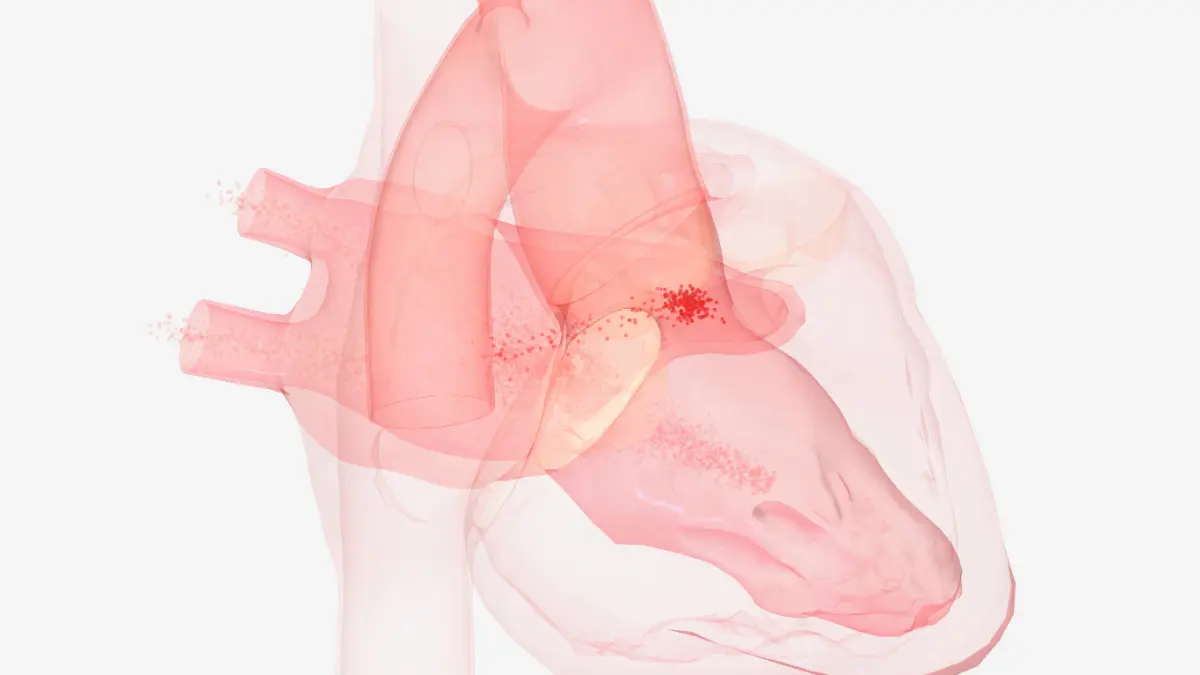Holiday Heart Syndrome is defined by irregular heart rhythms, specifically atrial fibrillation, that occur in people who have no history of heart disease. These irregular rhythms are often caused by excessive alcohol consumption, which is common during holidays and celebrations.

Holiday heart syndrome’s connection to Alcohol:
The consumption of alcohol is directly associated with Holiday Heart Syndrome. Studies have shown that even moderate to heavy drinking during the holiday season can trigger arrhythmias in susceptible individuals.
Seasonal Trends:
The syndrome is appropriately named because it peaks during the holiday season. Increased alcohol consumption, stress, and changes in diets appear to have contributed to the increase in cases observed during this time period.
Understanding Atrial Fibrillation

Atrial fibrillation (AFib) is a type of irregular heartbeat where the upper chambers of the heart (atria) beat chaotically and out of sync with the lower chambers (ventricles). This irregular rhythm can lead to complications, including blood clots and an increased risk of stroke.
Triggers for AFib:
The consumption of alcohol, particularly binge drinking, is a common trigger for atrial fibrillation in the context of Holiday Heart Syndrome. The exact processes by which alcohol causes these irregular heart rhythms are unknown, but they are believed to involve changes in the heart’s electrical signaling.
Symptoms of Holiday Heart Syndrome

1. Palpitations:
People experiencing Holiday Heart Syndrome may feel palpitations, a sensation of rapid, fluttering, or pounding heartbeats.
2. Shortness of Breath:
A common symptom is shortness of breath, often accompanied by a feeling of tightness in the chest.
3. Dizziness or Lightheadedness:
Some individuals may experience dizziness or lightheadedness, especially during episodes of irregular heart rhythms.
4. Fatigue:
General fatigue or weakness may be present, and individuals may feel unusually tired.
5. Chest Discomfort:
Chest discomfort or pain, although less common, can occur during episodes of atrial fibrillation.
Risk Factors and Vulnerable Populations

1. Alcohol Sensitivity:
Some individuals may be more sensitive to the effects of alcohol on the heart, increasing their susceptibility to Holiday Heart Syndrome.
2. Existing Heart Conditions:
Those with pre-existing heart conditions or a history of atrial fibrillation may be at a higher risk.
3. Age and Gender:
While Holiday Heart Syndrome can affect individuals of any age, studies suggest that it is more common in middle-aged and older adults. Gender may also play a role, with some studies indicating a higher prevalence in men.
Preventive Measures and Healthy Celebrations

1. Moderation in Alcohol Consumption:
The most effective preventive measure is moderation in alcohol consumption. Individuals should be mindful of their limits and avoid binge drinking.
2. Stay Hydrated:
Consuming water between alcoholic beverages can help counteract the dehydrating effects of alcohol and promote overall well-being.
3. Balanced Diet:
Maintaining a balanced and heart-healthy diet, even during festive seasons, can contribute to overall cardiovascular health.
4. Manage Stress:
The holiday season can be stressful, but finding healthy ways to manage stress, such as through relaxation techniques or exercise, can have positive effects on heart health.
5. Know Your Limits:
Individuals with a history of heart conditions or those at risk should be aware of their alcohol tolerance and consult with healthcare professionals if necessary.
While the holiday season is a time of joy and celebration, it’s essential to be aware of potential health risks, including Holiday Heart Syndrome. By understanding the connection between excessive alcohol consumption and irregular heart rhythms, individuals can take proactive steps to enjoy the festivities in a heart-healthy manner. As we unwrap the holiday season, let’s prioritize our well-being and ensure that the joy of celebration doesn’t come at the cost of our heart health.

